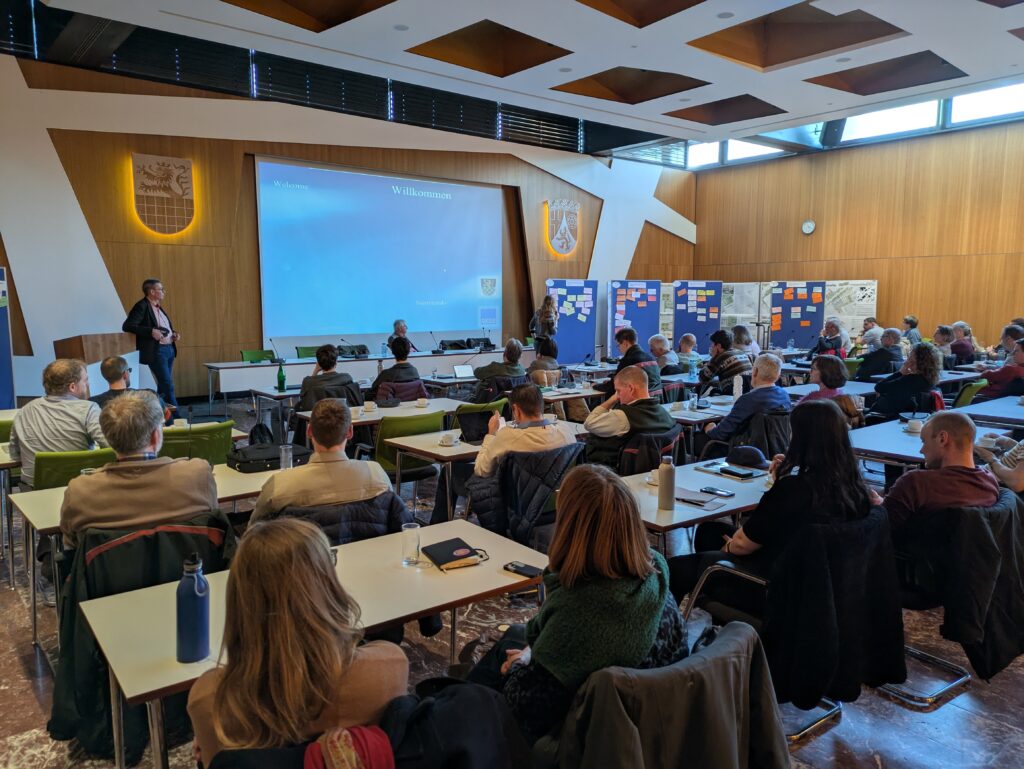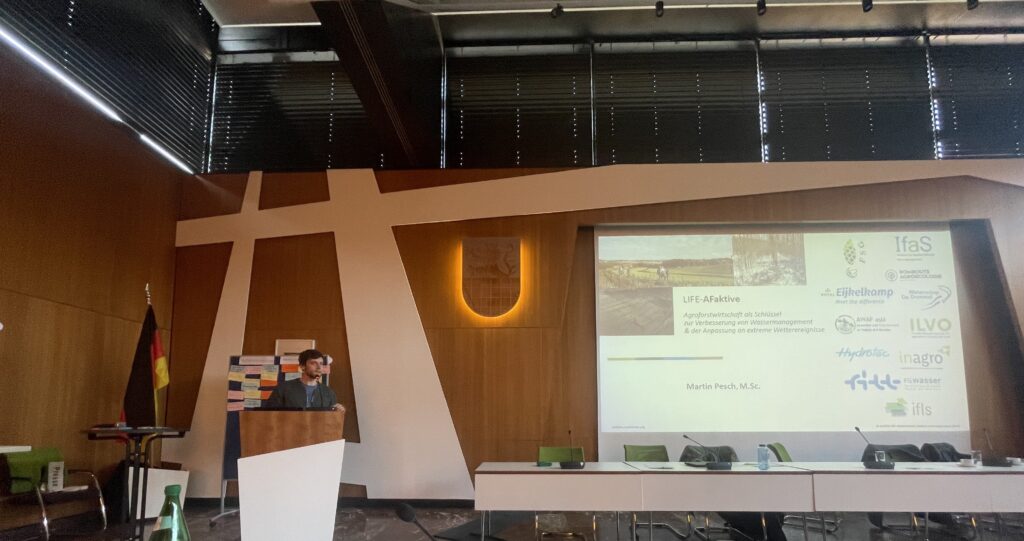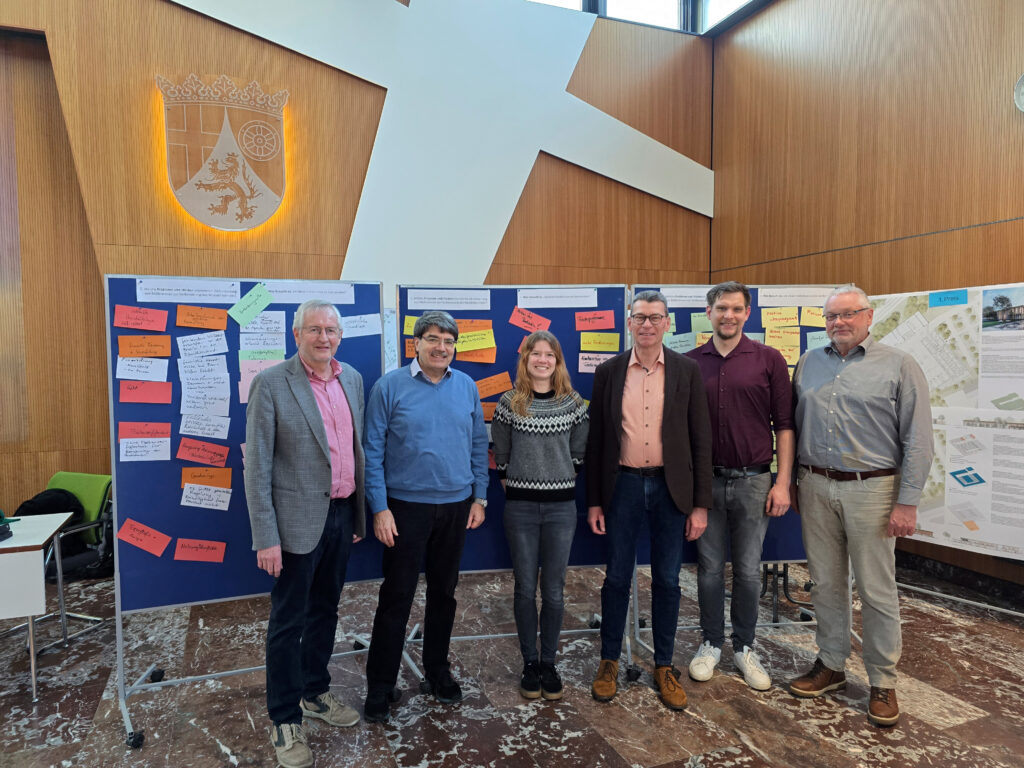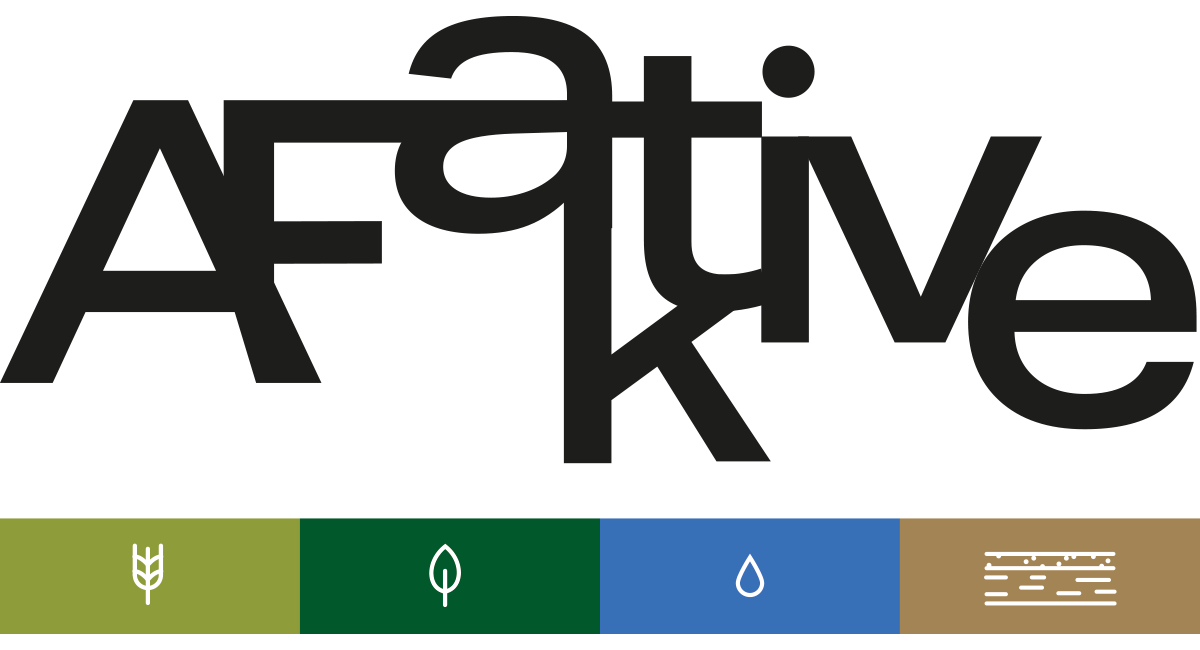On Monday 17th February 2025, the AFaktive team from the Institute for Applied Material Flow Management, IfaS (Trier University of Applied Sciences) attended the kick-off meeting of the “Soonwald-Nahe Sponge Region” project in Bad Kreuznach. In a presentation from IfaS, stakeholders from agriculture and forestry, local residents and representatives from government agencies and authorities were introduced to agroforestry as a building block in the landscape water balance.
Below is the official press release with further details.
__________________________________________________________________________________________________________________________________________
Bad Kreuznach, 17 February 2025 – Last Monday, the official kick-off event for the “Soonwald-Nahe Sponge Region” project took place at the Bad Kreuznach district administration. Numerous representatives from agriculture and forestry, local authorities and other interested regional stakeholders took part in the event to discuss the objectives of the project and to network.
The project is funded by the German Federal Environmental Foundation (Deutsche Bundesstiftung Umwelt, DBU) until the end of 2026 and is a partner consortium consist of the Hochschule Geisenheim University, the Soonwald-Nahe Nature Park and the Soonwald-Nahe Regional Alliance. This is the first time that science, public organisations and the volunteer platform have cooperated in the region. The aim is to establish a cross-stakeholder network for water retention and to develop and implement practical measures to increase water retention in the region.
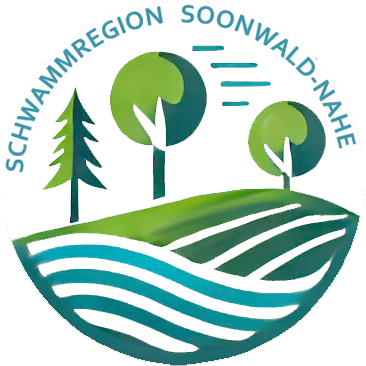
A sustainable concept for a “sponge region”
The Soonwald-Nahe Nature Park region is increasingly confronted with extreme hydrological events. More frequent flooding and periods of extreme drought affect both the wooded heights of the Soonwald and the open Nahe valley. These developments are not only caused by the climate, but are primarily the result of a landscape that has been altered by man and has limited water retention capacity.
A large number of measures to increase surface water retention have taken place in the region to date, both in the forest and in open land. However, there has often been a lack of dialogue between the various activities, particularly between initiatives in open land and forests. The “Soonwald-Nahe sponge region” project addresses this issue: Together with local stakeholders and experts from science and planning, targeted solutions for extensive water retention in the entire region are to be developed and initial pilot measures implemented.
Key goals
The core objectives of the project include
- the establishment of a cross-stakeholder network for water retention,
- strengthening awareness of the problem among regional stakeholder groups,
- the development of a practical catalogue of measures and
- the implementation of initial exemplary measures to improve water retention.
Dialogue and exchange at the event
The project content and the planned approach were presented during the event. Almost 70 participants identified potential and needs in the region in working groups. The project team emphasised the importance of working together with regional stakeholders to enable sustainable adaptation to the climate challenges.
As an important result of the event, a project group of interested stakeholders from the respective subject areas will now be formed to support the project over the long term. This is because the project that has now been launched is intended to be the prelude to longer-term work in and for the region.
Contact:
For further information on the project, please contact
Hochschule Geisenheim University
Soonwald-Nahe Regional Alliance
Project manager: Jenny Eckes, jenny.eckes@hs-gm.de
